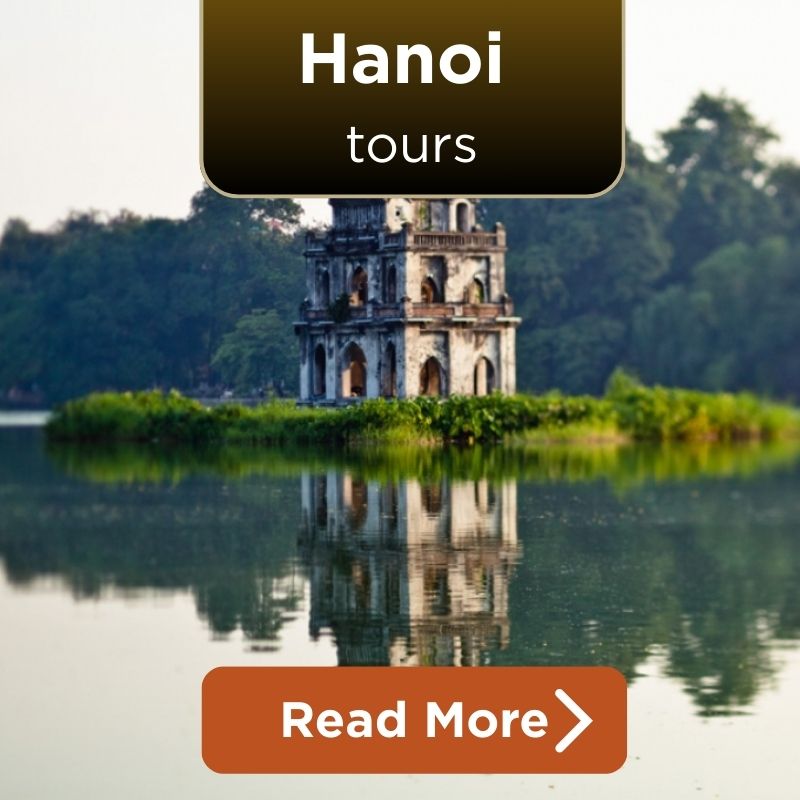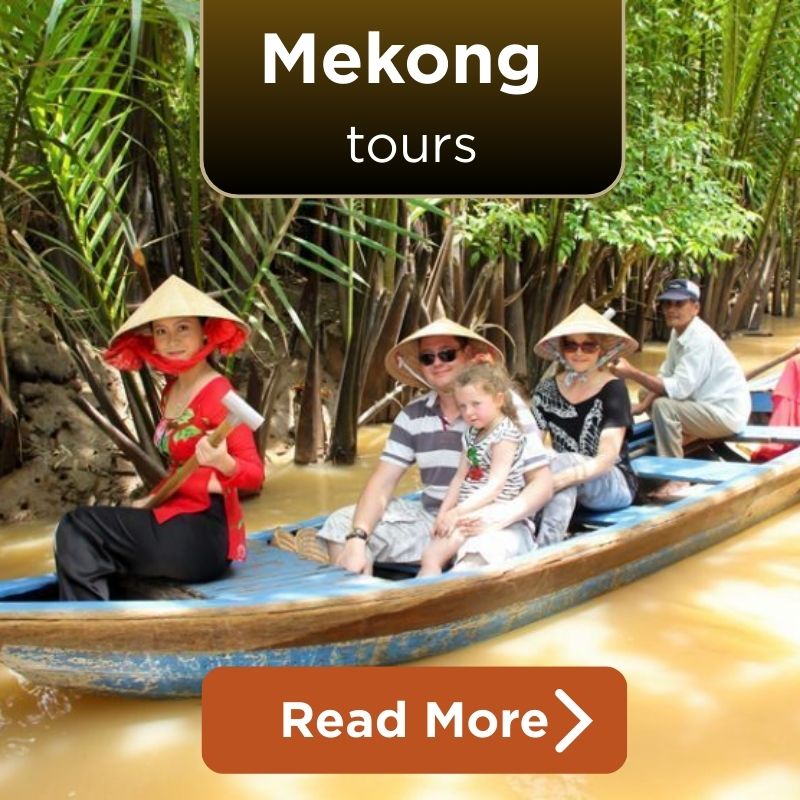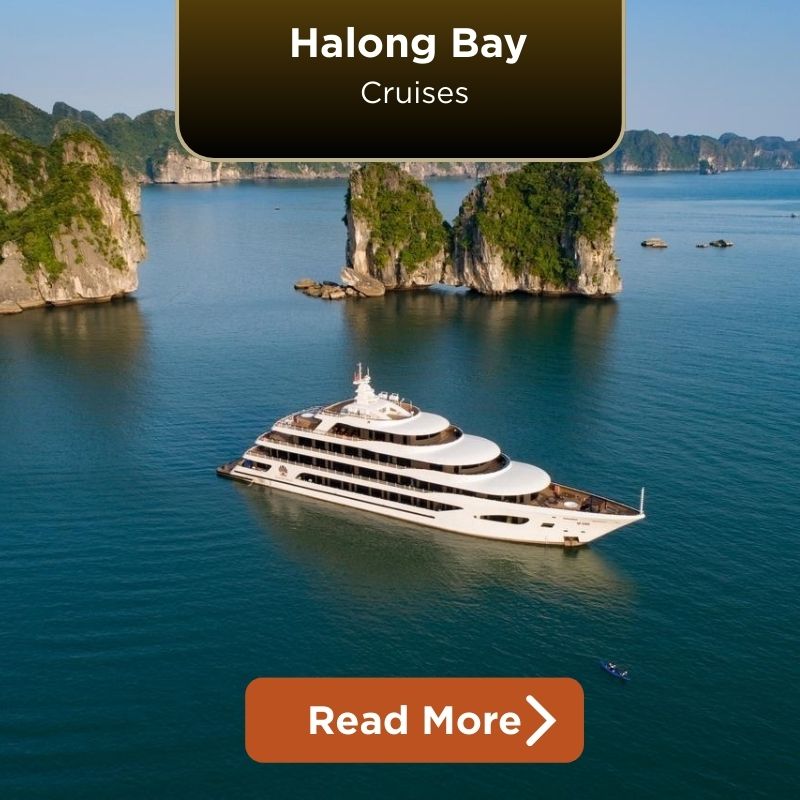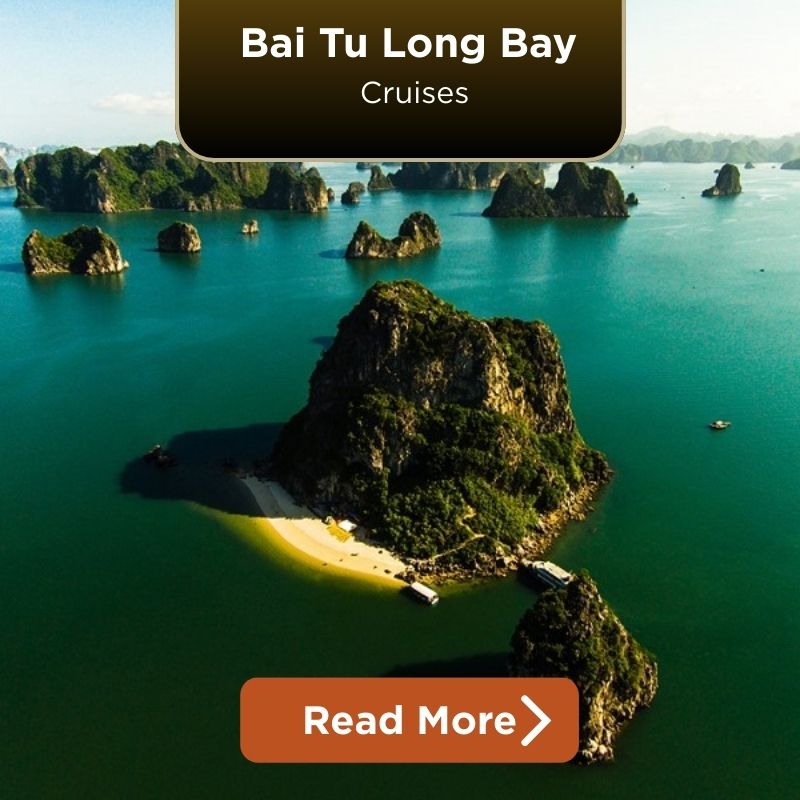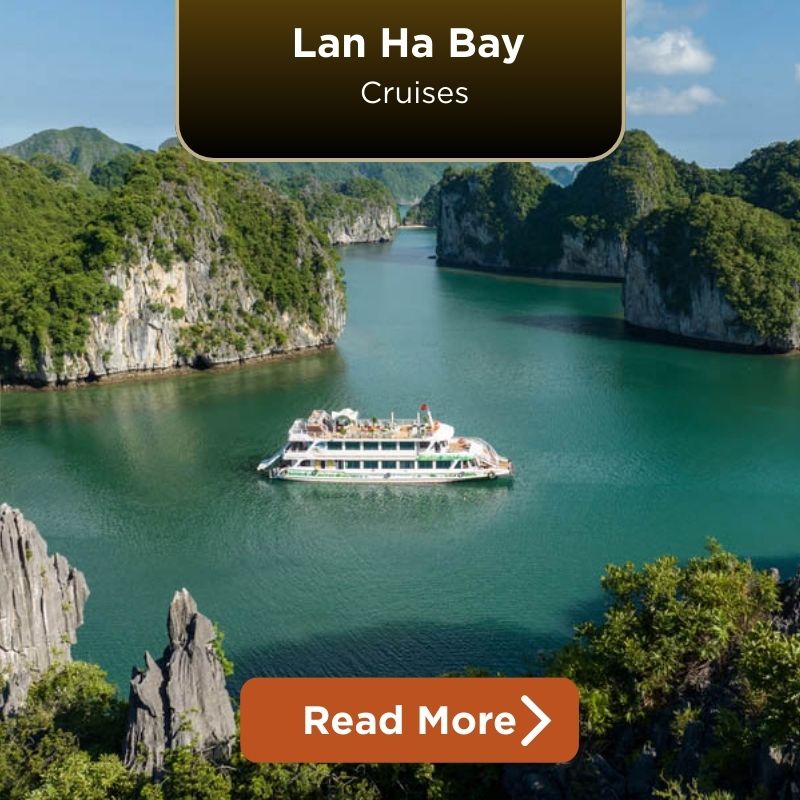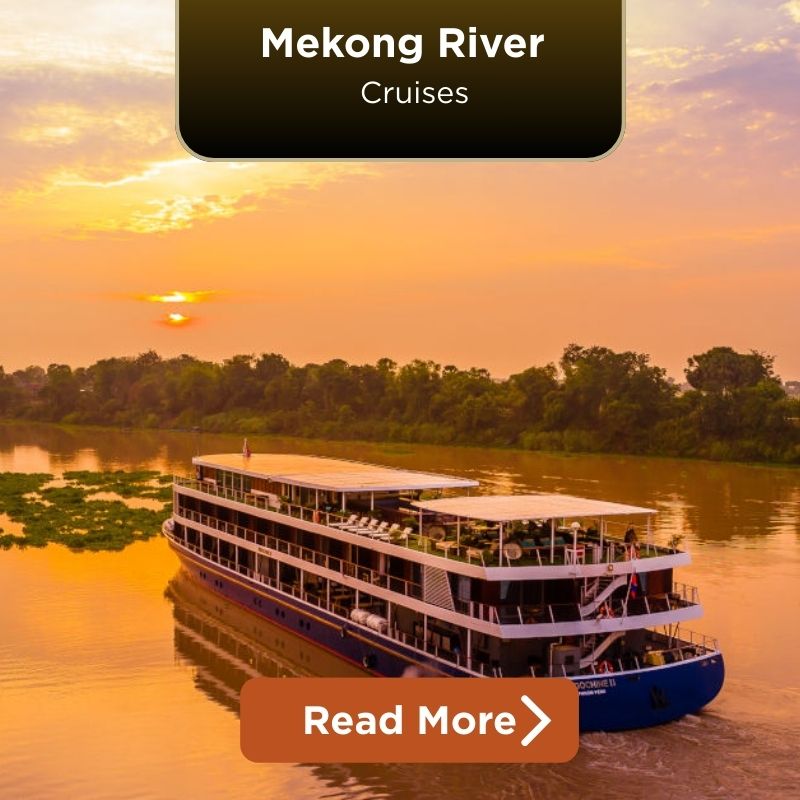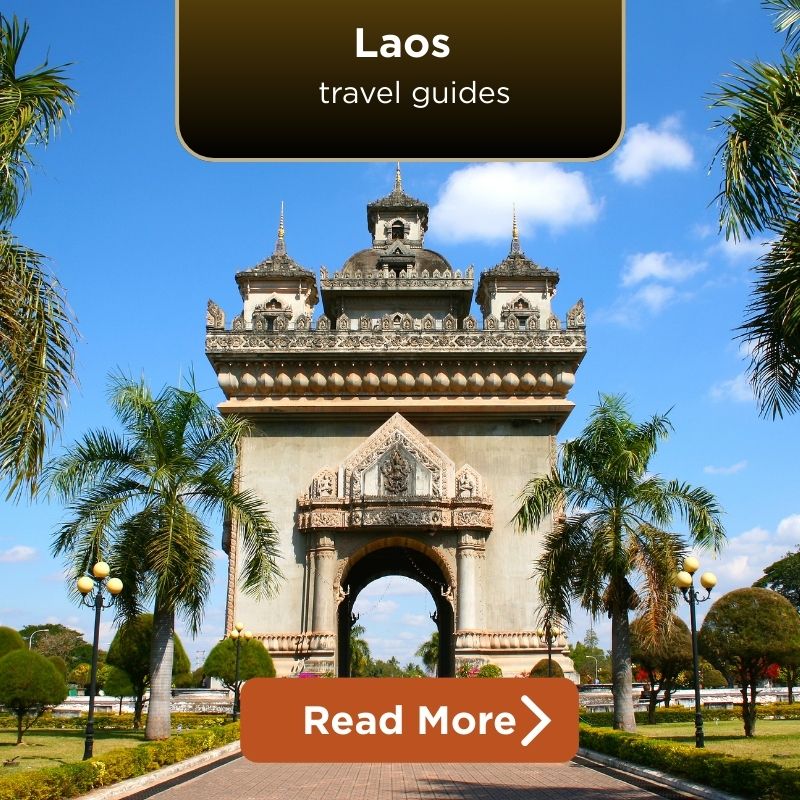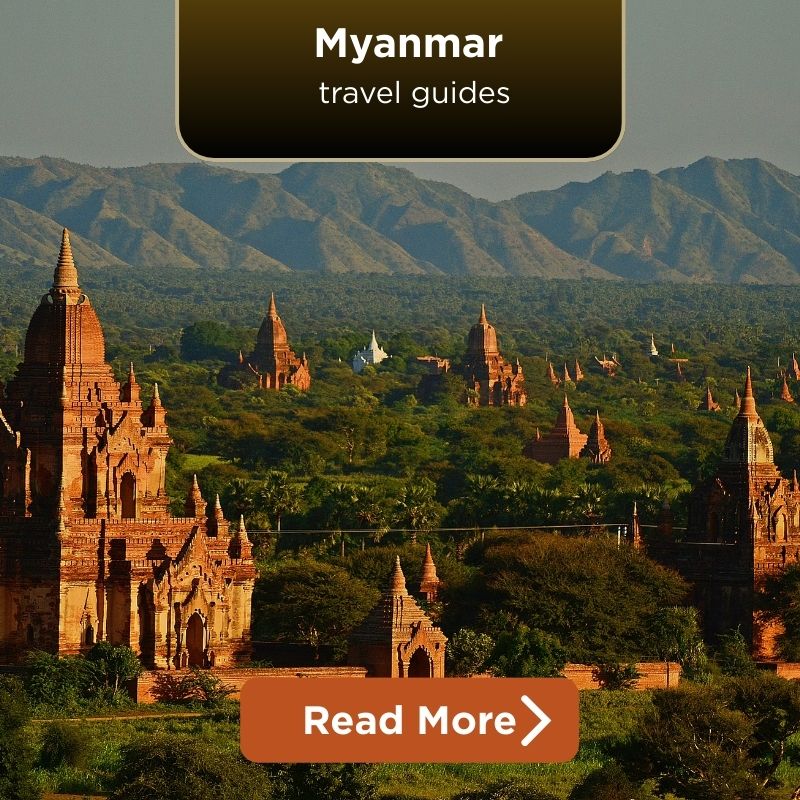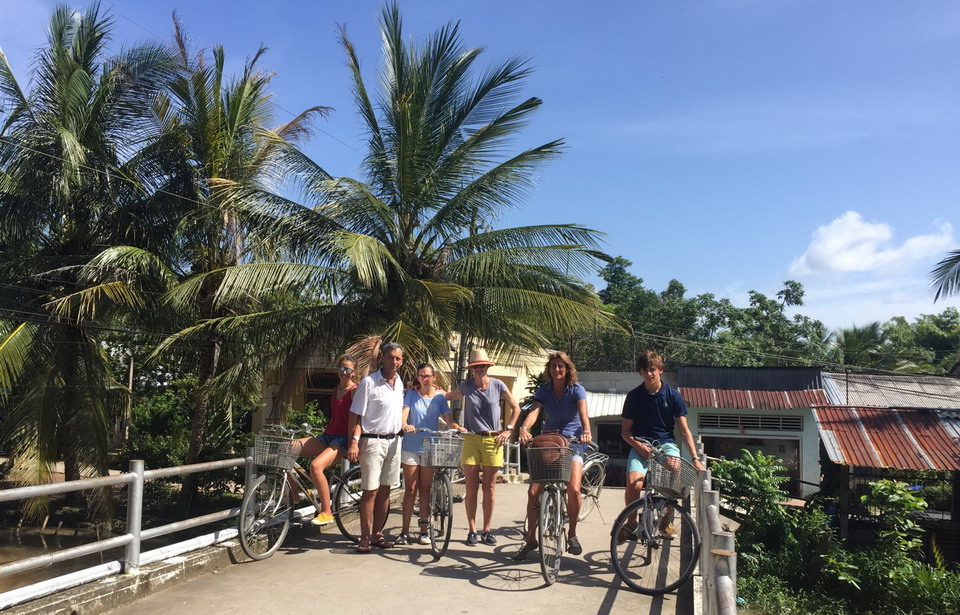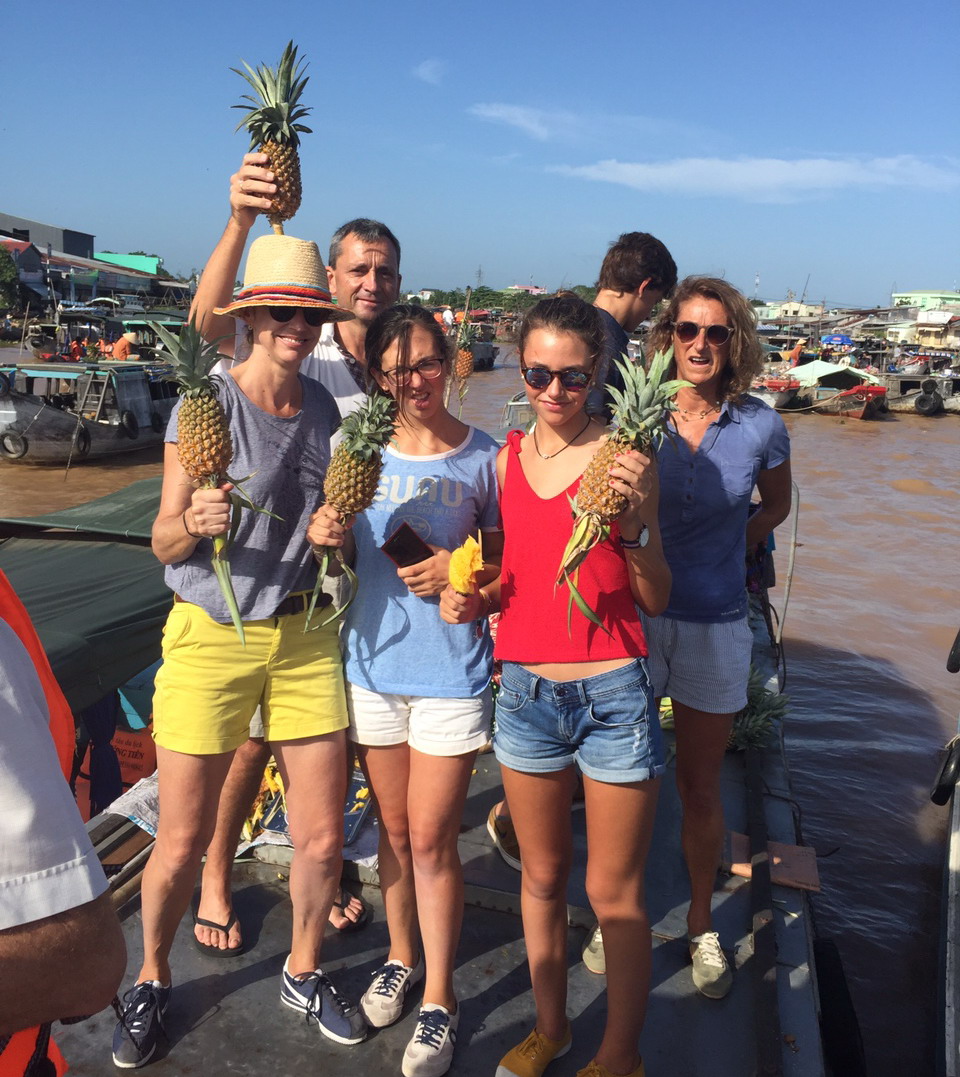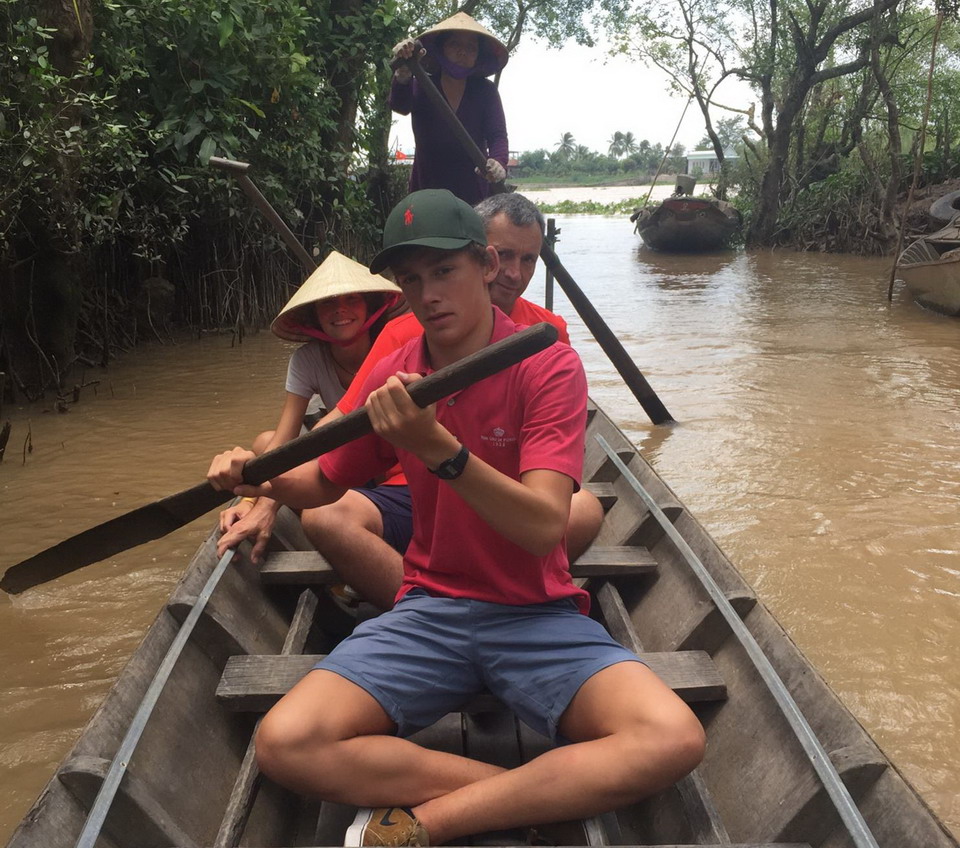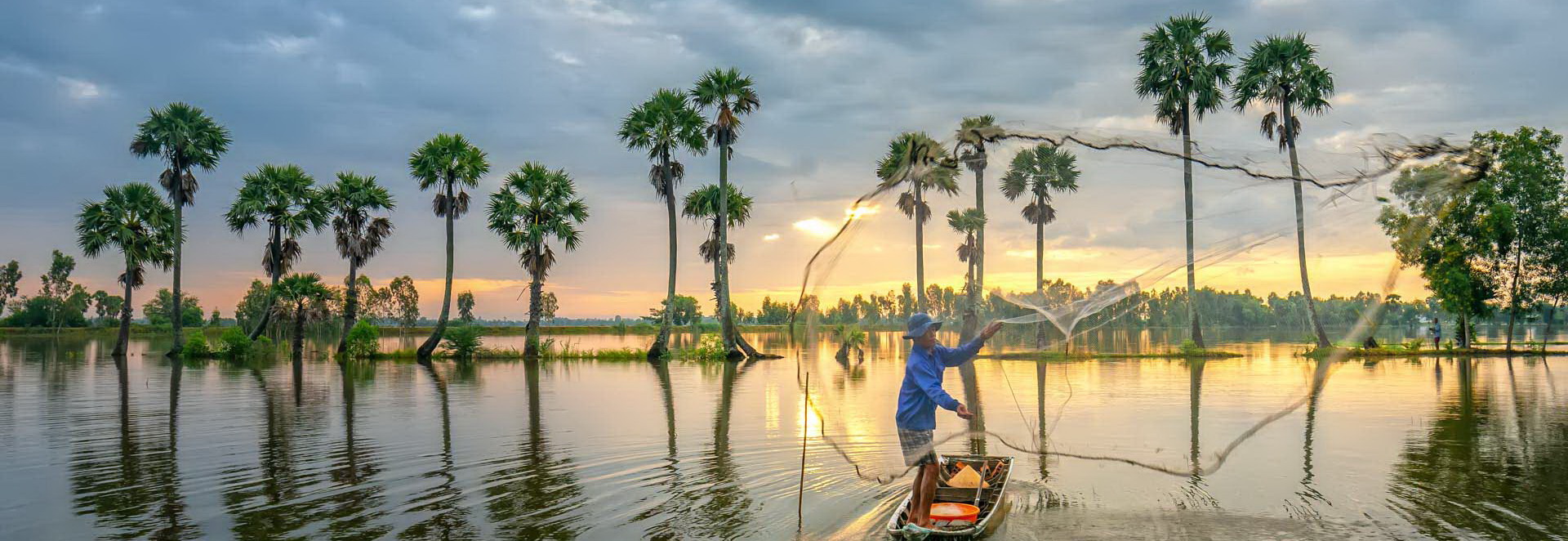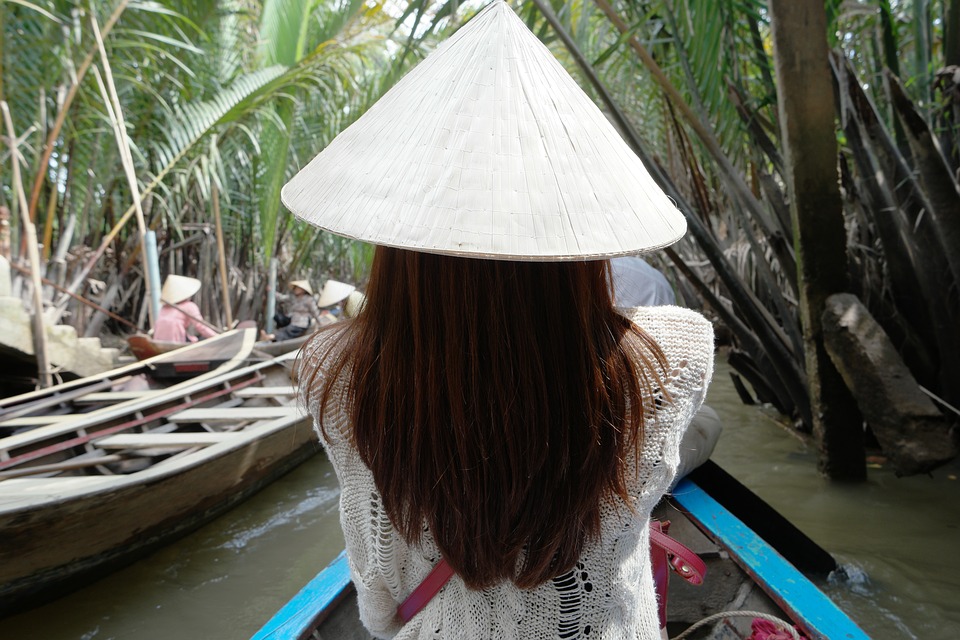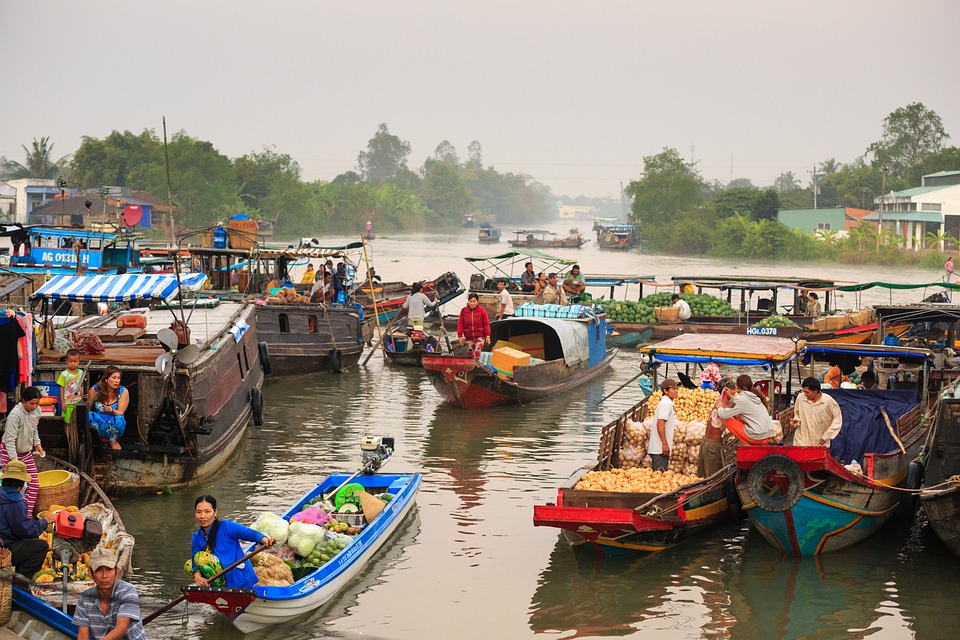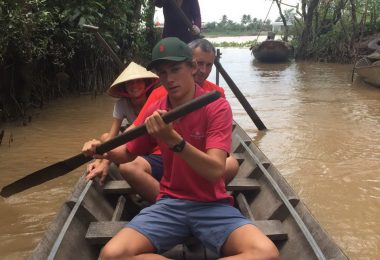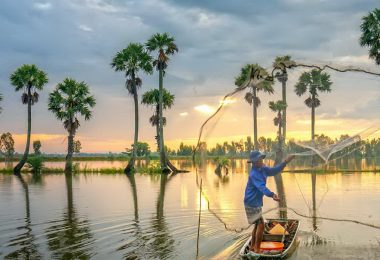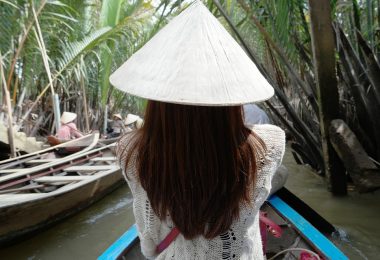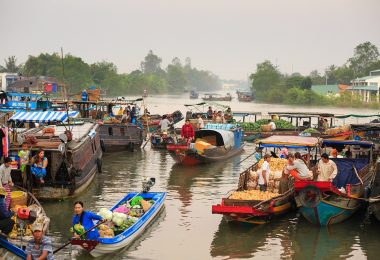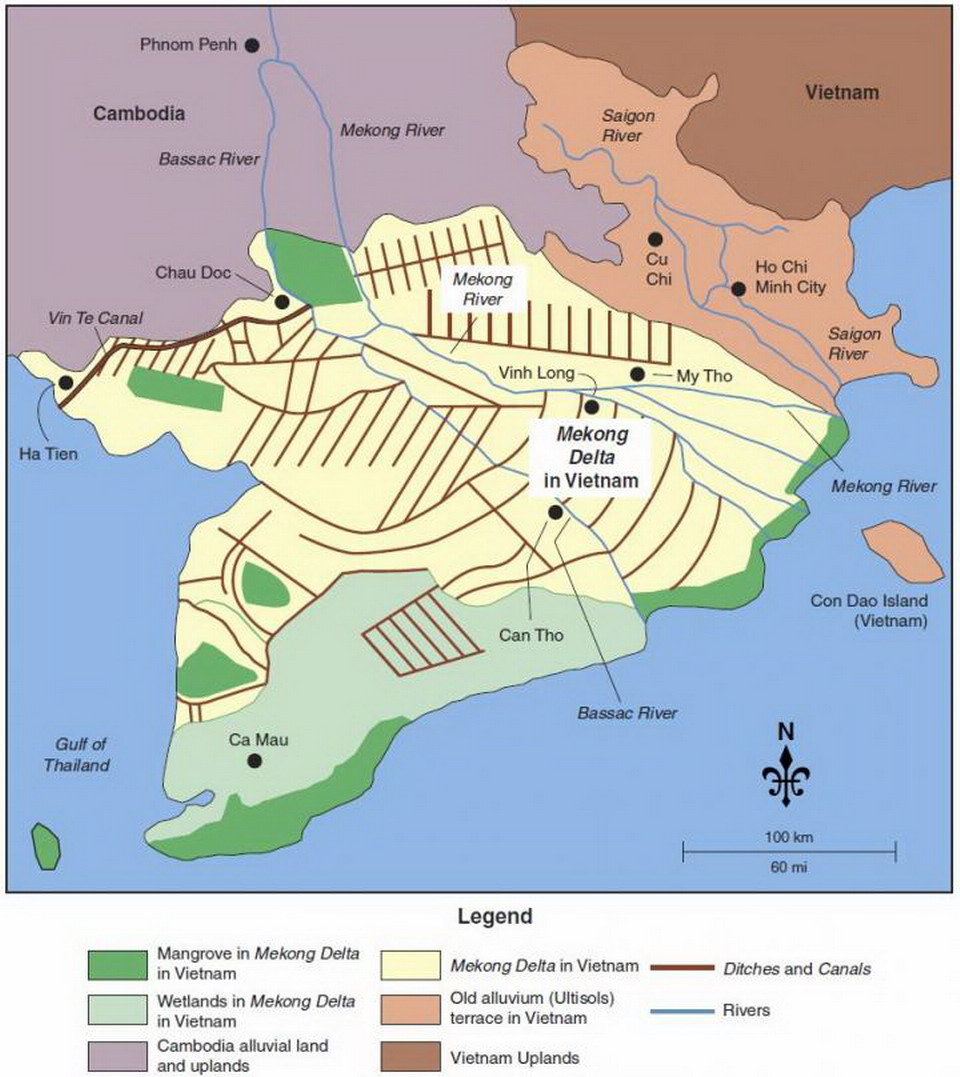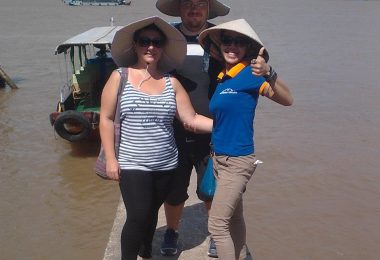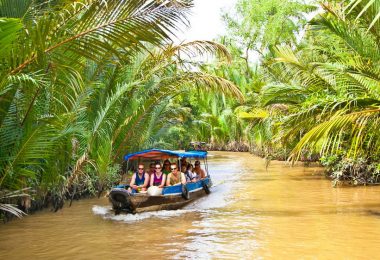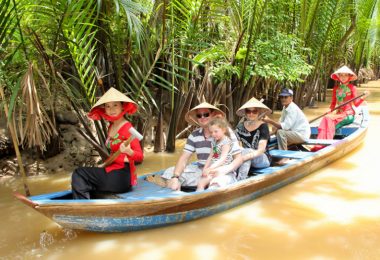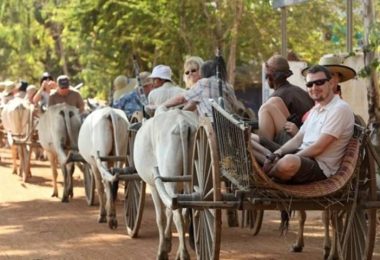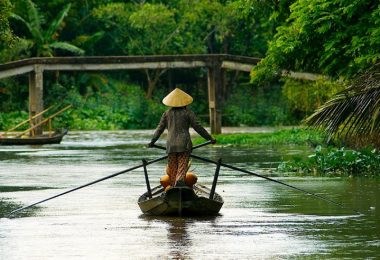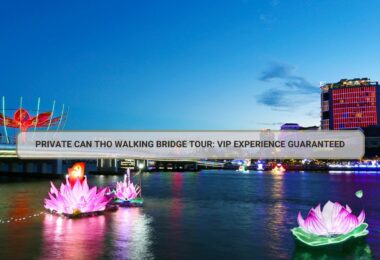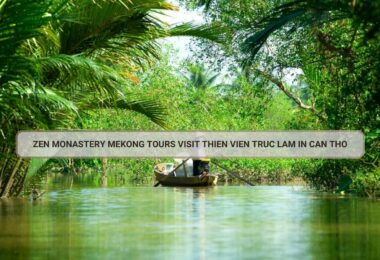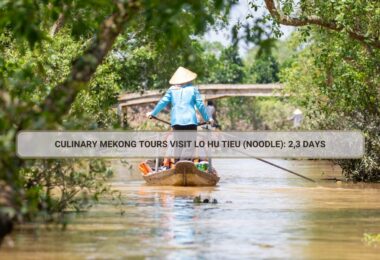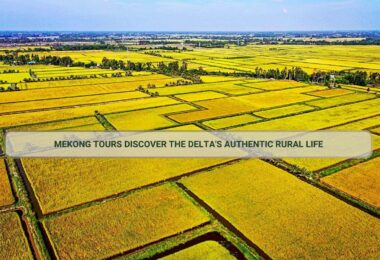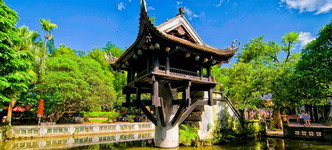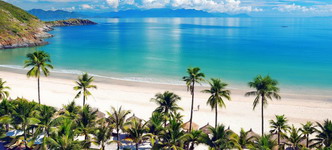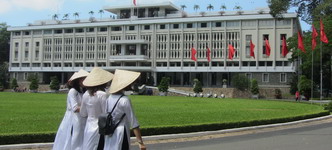The Mekong River is one of the most vital rivers in Southeast Asia, flowing through six countries to reach Vietnam. Extending nearly 4900 kilometers from the Tibetan Plateau to the South China Sea, it feeds a vast array of ecosystems and people. For Vietnam, the river is essential, as it changes every aspect of its history, culture, economy, and environment. This essay will highlight why the Mekong River is important to Vietnam, touching upon its historical and cultural significance, economic impact, environmental value, and socio-economic issues.
Historical and Cultural Significance
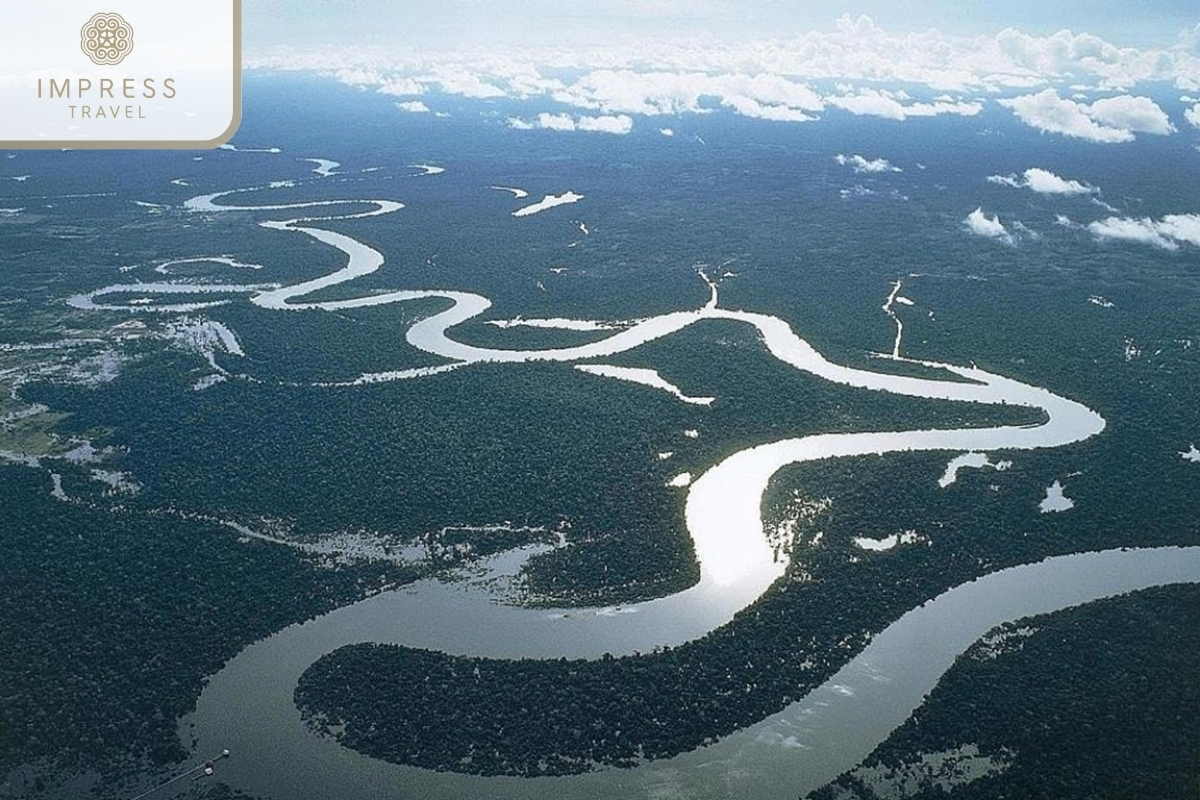
Mekong River
Ancient Civilizations and Trade Routes
The Mekong River has been key to ancient civilizations- the evidence from archaeological findings showcases that the river basin hosted human settlements thousands of years ago. These ancient civilizations thrived because of the river’s fertile lands, and an abundance of water supply in the region, which provided vast irrigation potentials to grow their crops. Mei and Luet al present that the Mekong was a vital part of the trade route, which allowed people from several central trading hubs to establish a connected path and trade their goods. The Mekong River is important to Vietnam, as it not only provides sustenance but allows people from different regions to connect and sell goods, which had substantial impacts on the region’s economic prosperity
Cultural Heritage
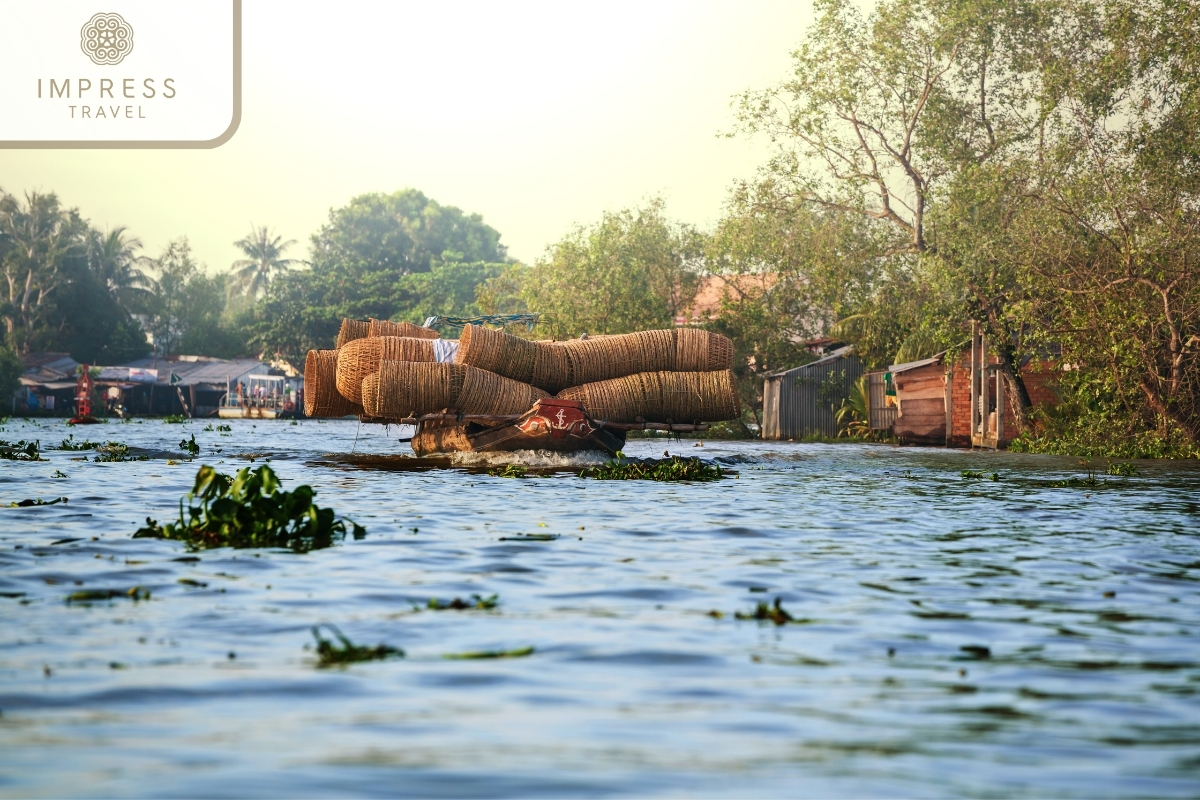
Daily activities on the river
Vietnam’s culture is closely linked to the Mekong River, as it has inspired numerous artworks, literary, and folkloric works. An epic poem “Thank you, Mekong River,” by the celebrated Vietnamese poet Le Tuan Loc is an illustration of just how important to Vietnamese culture the river is. Festivals like the Ok Om Bok Festival in the Mekong Delta commemorate the river’s contributions and the role it plays in their day-to-day lives. Many other cultural practices, customs, and arts have influences from the river.
Religious Importance
The Mekong River holds great religious significance as well. It is worshiped in various religious practices, primarily in Buddhism which prevails in the region. The temples and religious places along the river attract both the followers of that particular religion and tourists, emphasizing the spiritual bond between the river and its people. Also, the water from the river, ideal for religious procedures, is used to purify and renew the participants.
Economic Contributions
Agriculture
The Mekong Delta is one of the most fertile regions in the world which is widely known as the “rice bowl” of Vietnam. The delta expresses the life-sustaining might of the river facilitating the existence of vast territories of rice paddies. Owing to the particular qualities of the river, the nation is one of the leading exporters of rice. Furthermore, the fish farms and aquaculture in the delta provide a substantial part of the region’s contribution to the economy of the country. The Mekong has the reputation of a living god for the local farmers who require the water for irrigation which ensures the high quality of the soil and huge harvest, essential for the nation’s food supply security. Irrefutably, the Mekong River is important to Vietnam for its agricultural prosperity.
Fisheries and Aquaculture
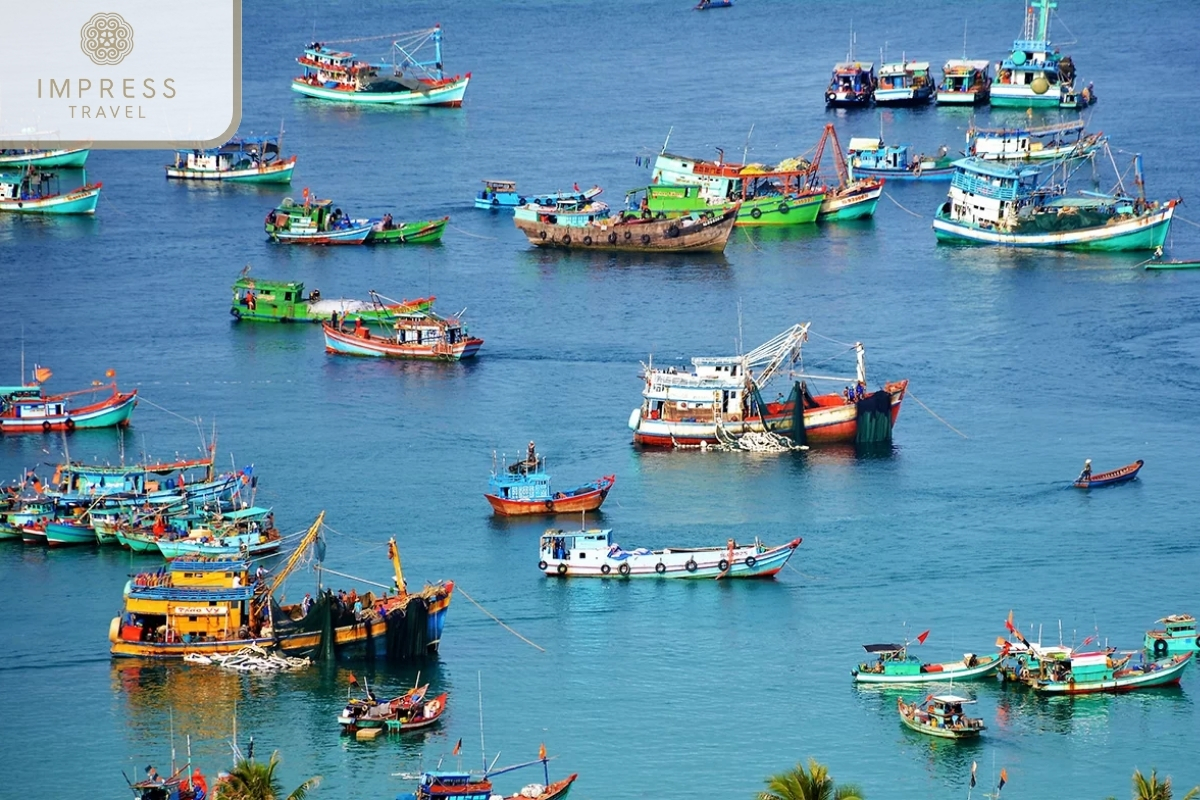
caught seafood
The Mekong River is the fundamental source of fish and other aquatic life which sustains both industrial and recreational fishing. The river is the natural habitat of a vast number of fish of different species, many of which have either economic or gastronomic value. Noteworthy, the quick exploitation of these resources is severely dangerous which forces the people to look for balance and find new ways of sustaining the fish life for production, carving an advantageous and convenient source of fishing and food for millions of people.
Transportation and Trade
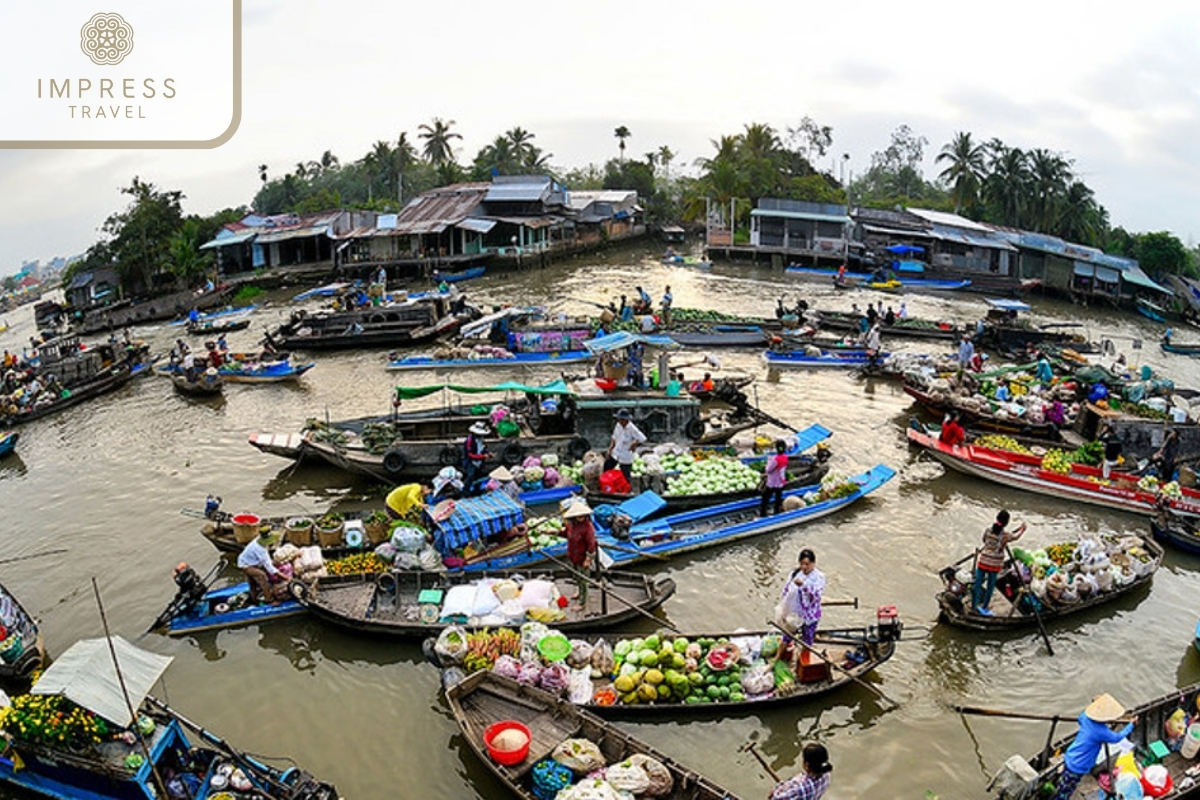
Floating Market
Another vital aspect of the economy of the region is the transportation and trading with the river. The Mekong River is a convenient way of transporting both goods and people. The emphasis is given to the trading ports and markets Can Tho and My Tho which had become a stepping stone in the formation of the different parts of Vietnam as one economic country by entering the foreign market and supporting the local trade with different regions within Vietnam.
Hydroelectric Power
There is comprehensive potential for hydroelectric power generation along the Mekong. Moreover, there are already existing hydroelectric projects, such as the Yali Falls Dam, contributing a great deal to the country’s energy security. However, precisely because these projects can provide sustainable energy to the country, there is also a need to ensure that the economic benefits of hydroelectric power generation do not come at the cost of the health of the river and the surrounding communities. Thus, sustainable management is critical to ensure that hydroelectric power does not hurt the river’s ecosystems. This underscores why the Mekong River is important to Vietnam for its energy needs.
Environmental Importance
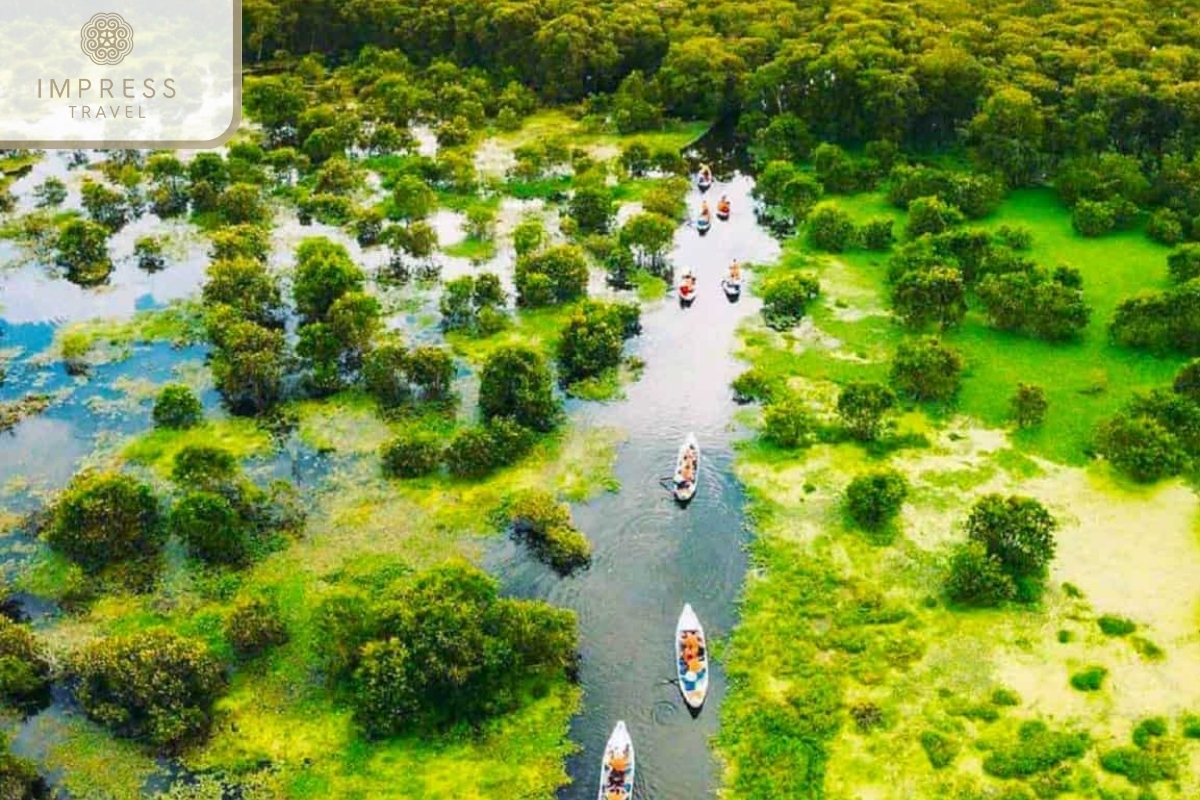
Tra Su melaleuca forest
Biodiversity
The Mekong River is home to a rich biodiversity and is one of the most biologically diverse rivers in the world. The river’s ecosystems are estimated to house between 1,200 and 1,700 fish species. Some of these species are considered rare and vulnerable, such as the Mekong giant catfish, Giant freshwater stingray, Anototitrema, Pangasius, and Schistura polychroma. At the same time, the river’s systems are also home to many other plant and animal life, the existence of many of which is at risk. It is crucial to conserve the river’s biodiversity to ensure that the river’s natural resources are not depleted through insufficient management.
Water Resource Management
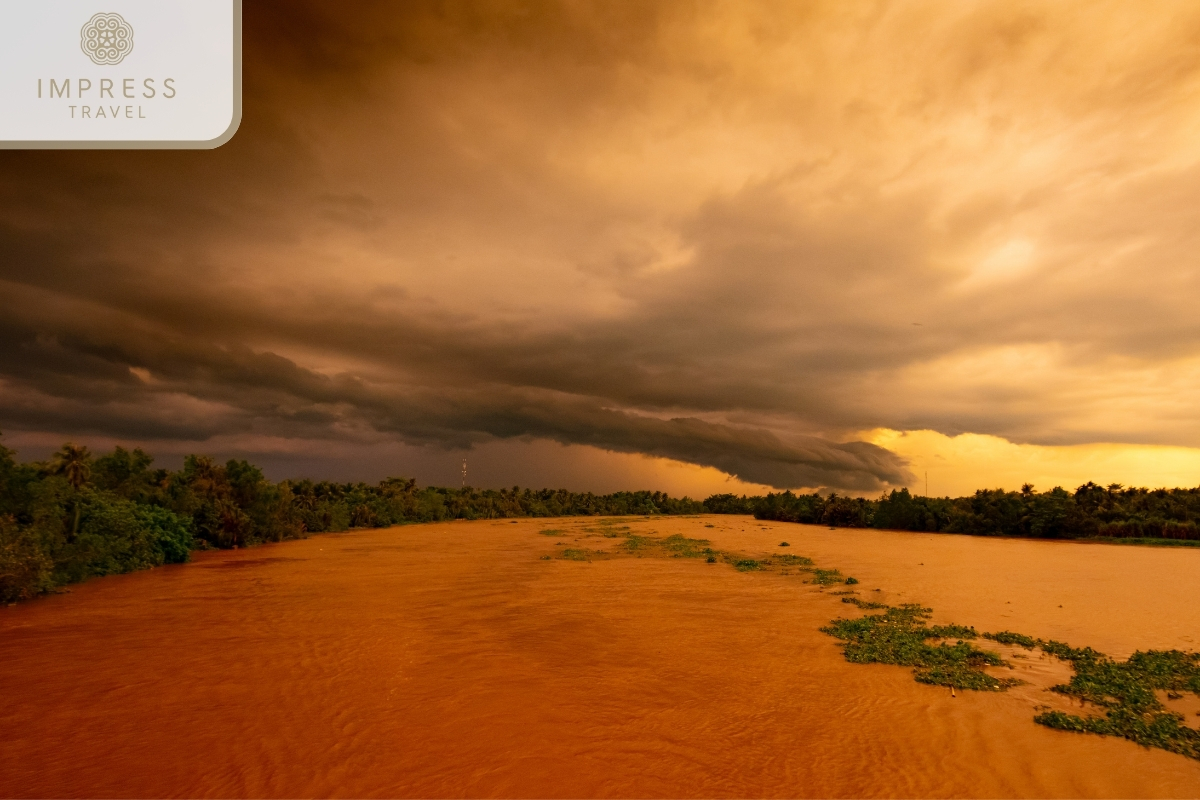
Water Resources
Water resource management is a vitally important aspect of conserving the Mekong River. The river’s waters are used as an important source of irrigation, drinking, and industrial purposes. However, several threats and challenges, including pollution, over-extraction, and shared access create a risk for the sustainable use of fresh water. Very timely measures need to be taken by local, national, and international stakeholders to manage water resources by implementing modern, equitable, and sustainable forms of management. Not managing the river’s water resources contributes to the depletion of vital resources and creates a risk for the survivability of the communities inhabiting the area.
Climate Impact
Lastly, the Mekong River serves a vital function in the prevention of the negative impact of climate change. Its vast wetlands and flood plains can help cushion the world from floods, yet climate change also makes water more scarce in the region. The river’s water levels can shift, affecting agricultural production, but the river ecosystem is being steadily damaged by climate change. Comprehensive climate adaptation strategies and technology can be used to manage the river’s health. This illustrates why the Mekong River is important to Vietnam in combating climate impacts.
Conclusion
In conclusion, the Mekong River is important to Vietnam for numerous reasons. It is the source of life, the economy, and the ecosystem of the nation. With its long history and cultural value, the river’s economic and environmental impacts demand sustainable strategies. Unless all these challenges confronting villagers living along its banks, in turn, are addressed, no one will enjoy benefits from that river for future generations. If we now know why the Mekong River is important to Vietnam, then let us begin to take some comprehensive measures. In this way, both development and sustainability can be balanced so that life along this river may hereafter continue flourishing.Don’t forget to regularly follow our Fanpage for more interesting information about traveling Mekong to and to book Mekong Tours at the best prices.















